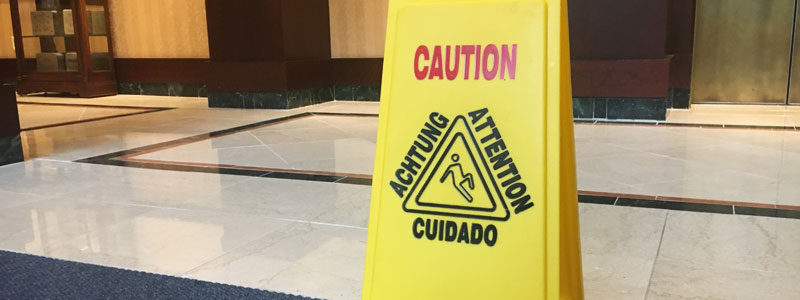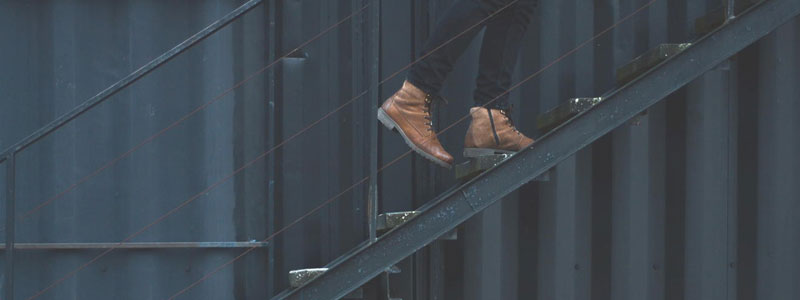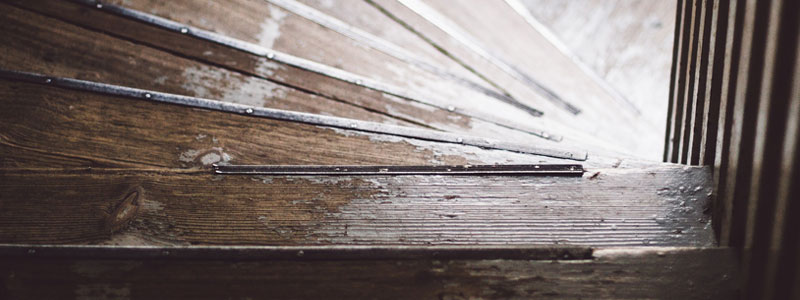How Does Comparative Fault Affect My Slip and Fall Claim?
Because of a few Indiana state laws, property owners can blame slip and fall victims for their own injuries. Though it sounds harsh, comparative fault is a common legal concept used in both personal injury and car accident claims. But if you’ve been hurt in a slip and fall accident, the last thing you want […]

February 7, 2018

Because of a few Indiana state laws, property owners can blame slip and fall victims for their own injuries. Though it sounds harsh, comparative fault is a common legal concept used in both personal injury and car accident claims.
But if you’ve been hurt in a slip and fall accident, the last thing you want to hear from your legal opponent is that you hurt yourself and don’t deserve compensation for your medical bills. This accusation can add insult to injury and reduce or even eliminate your damages.
Understanding comparative fault and how to present your case in the strongest light may help you earn more from a slip and fall settlement.
Comparative Fault

Premises liability injury claims have two sides: a property owner who wants to minimize the cost of the claim, and an injured victim who wants to compensation for medical costs and pain and suffering. Based on both accounts of the accident, insurance adjusters (or a jury, if the case goes to trial) will assign comparative fault to both parties.
As long as the victim is found less than 50 percent responsible for the accident, they should receive compensation. However, for the percentage they are found at fault, their damages will be reduced. So, if the victim is determined to be 20 percent at fault for their accident, their compensation will be reduced by 20 percent as well.
Comparative Fault vs. Contributory Negligence
Now, this may seem like a rip-off, but Indiana’s comparative fault laws at least allow you to have some wiggle room for earning compensation. One type of personal injury law, called contributory negligence, would make it extremely hard for victims to sue property owners; if the claimant were found to be even one percent at-fault for the accident, they would lose the case. Thankfully most, slip and fall accidents in Indiana are judged by comparative fault, not contributory negligence. Typically, contributory negligence only applies in Indiana slip and fall cases where the defendant is a government entity.
Building a Strong Argument for Negligence

At this point, it’s worth mentioning that comparative fault only comes into consideration once insurance adjusters or a judge/jury determines the property owner exhibited at least some negligence in creating the condition that caused your accident. If the evidence suggests the property owner did their due diligence in warning and helping people avoid the known hazard, your claim could be dropped and you may not receive damages.
If your case does make it to comparative fault consideration, the strength of your argument will directly affect how much compensation you will receive.
As you can imagine, property owners are highly motivated to put a great deal of effort into reducing the amount of money they will have to pay in a slip and fall settlement, which means they will put forward as many arguments as possible to place the blame on you, the victim.
Common arguments that relieve owners from liability include:
- The victim was injured in an area clearly marked as off-limits to visitors or customers
- The condition that caused the accident was obvious enough not to warrant extra warning
- The victim was not paying attention at the time of the accident (usually because they were distracted by a phone or other device)
- The victim was wearing improper or dangerous footwear at the time of the accident.
These arguments can be quickly refuted by presenting photographs of the scene of the accident, but many claimants either forget to take pictures or fail to document every piece of relevant information, like the type of shoe they were wearing.
Help from an Indiana Personal Injury Lawyer
You can expect property owners will supply their own attorney to help them negotiate a slip and fall settlement, which can be intimidating for a victim facing both insurance adjusters and lawyers on their own. Hensley Legal Group’s personal injury attorneys can lift this burden and work to present your case in the strongest way possible.
Though working with a personal injury attorney won’t guarantee your claim will result in awarded damages, it does help reduce the amount of time and effort you will need to personally spend to prepare for all the important details in your slip and fall case. Contact our team today to learn how we may be able to help you.
Available 24/7
Free Case Review
You won’t pay any fees until we win your case.
It’s easy - you can: